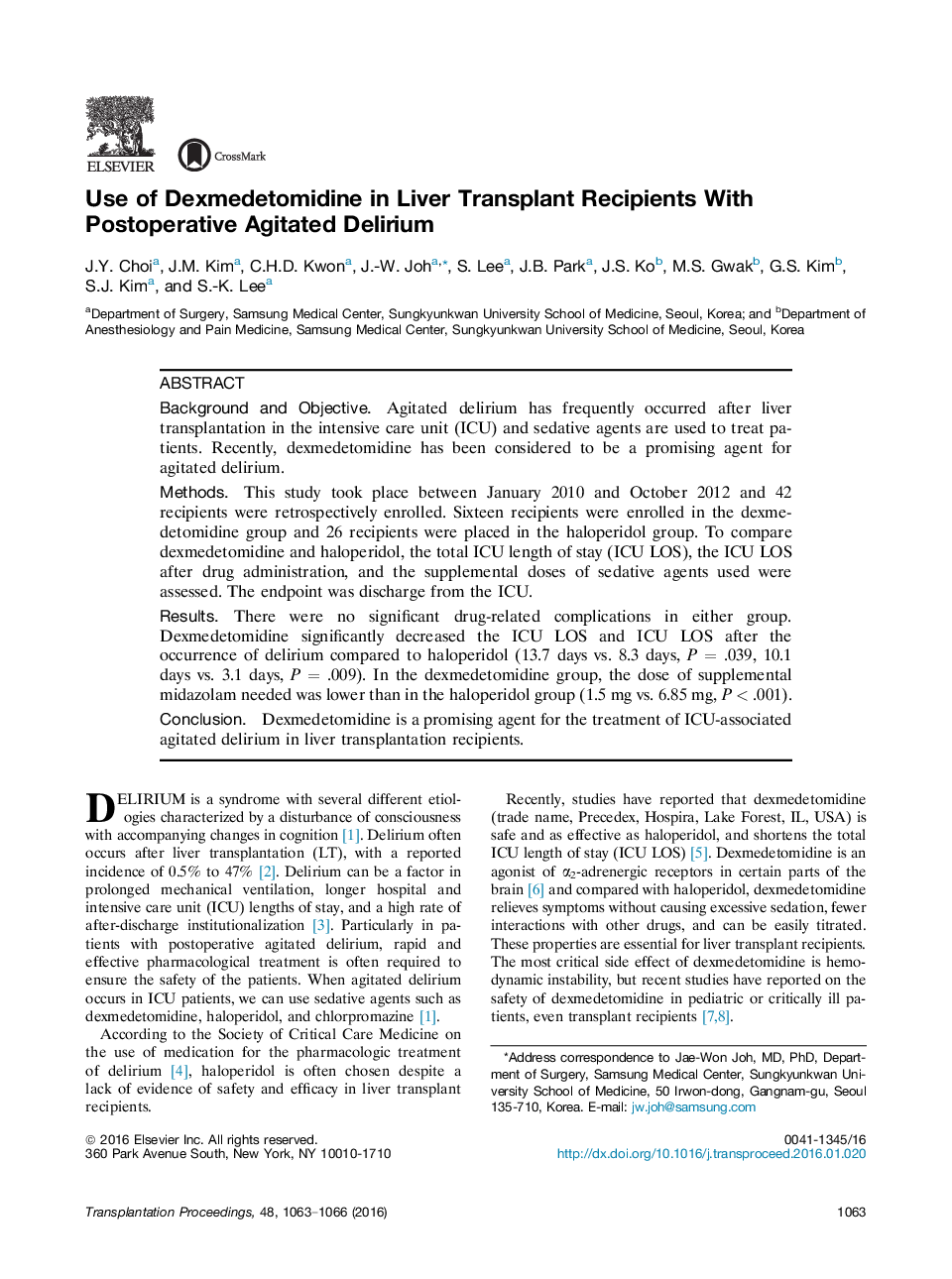| Article ID | Journal | Published Year | Pages | File Type |
|---|---|---|---|---|
| 4255960 | Transplantation Proceedings | 2016 | 4 Pages |
•The use of dexmedetomidine in postoperative agitated liver transplant recipients is compared with haloperidol during ICU management.•Dexmedetomidine, in comparison with haloperidol, significantly decreased ICU length of stay and safely reduced the use of supplemental midazolam.•Dexmedetomidine is a promising agent for the treatment of ICU associated agitated delirium in liver transplant recipients.
Background and ObjectiveAgitated delirium has frequently occurred after liver transplantation in the intensive care unit (ICU) and sedative agents are used to treat patients. Recently, dexmedetomidine has been considered to be a promising agent for agitated delirium.MethodsThis study took place between January 2010 and October 2012 and 42 recipients were retrospectively enrolled. Sixteen recipients were enrolled in the dexmedetomidine group and 26 recipients were placed in the haloperidol group. To compare dexmedetomidine and haloperidol, the total ICU length of stay (ICU LOS), the ICU LOS after drug administration, and the supplemental doses of sedative agents used were assessed. The endpoint was discharge from the ICU.ResultsThere were no significant drug-related complications in either group. Dexmedetomidine significantly decreased the ICU LOS and ICU LOS after the occurrence of delirium compared to haloperidol (13.7 days vs. 8.3 days, P = .039, 10.1 days vs. 3.1 days, P = .009). In the dexmedetomidine group, the dose of supplemental midazolam needed was lower than in the haloperidol group (1.5 mg vs. 6.85 mg, P < .001).ConclusionDexmedetomidine is a promising agent for the treatment of ICU-associated agitated delirium in liver transplantation recipients.
